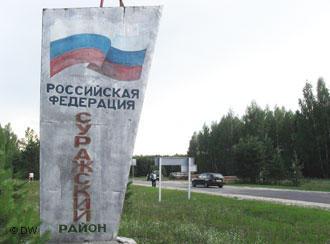
Parallel Soul-Searching: EU on Belarus and Belarus on Russia
Publication: Eurasia Daily Monitor Volume: 10 Issue: 214
By:

Dzianis Melyantsou, from the Belarusian Institute for Strategic Studies, a Minsk-based think tank funded by the West, subjects the European Union’s Eastern Partnership (EaP) policy to criticism (https://www.eesc.lt/uploads/news/id521/Bell%202013_6(36).pdf). According to Melyantsou, for countries that are not willing to join the EU, the conditionality approach (aid in exchange for reforms) does not work, since it does not ensure sufficient stimuli for transformation. Brussels, insists Melyantsou, is inconsistent in its policies vis-à-vis neighbors, primarily because of geopolitical and economic considerations. Consequently, “political prisoners in Belarus served a reason for sanctions against officials and enterprises, while political prisoners in Ukraine, Azerbaijan and Russia do not constitute grounds for the EU to at least limit high-level contacts.” Above all, “the contradiction between the geopolitical rationality of the European policy and the pro-democratization idealistic rhetoric of European politicians undermine both the EaP tools (e.g. the ‘more for more’ concept) and the image of the EU as a global player in general. Post-Soviet autocrats find many similarities between this contradiction and their own practices, becoming even more assured that neither demands nor tough statements of Brussels” should be taken too seriously.
Meanwhile, the European Policy Center’s November 2013 Issue Paper, authored by Francesco Giumelli and Paul Ivan (https://www.epc.eu/pub_details.php?cat_id=2&pub_id=3928), contains some unusual statements indicative of the EU’s soul-searching over its policy toward Belarus. First, the paper recognizes that “lowering tensions between the EU and Belarus” between 2007 and 2010 was conditioned by the “2007 energy crisis between Russia and Belarus”—a rare acknowledgment of a geopolitical underpinning of the abortive rapprochement between the Brussels and Minsk. Second, the document notes the “widespread criticism of double standards” inherent in “the EU’s much milder policy toward autocratic Azerbaijan” as compared to the harsher line toward Belarus. Third, Giumelli and Ivan’s report recognizes the Baltic States’ interest in good relations with Belarus, as 50 percent of total freight value in Latvia and 40 percent in Lithuania is generated by the transit of Belarusian goods.
Perhaps the most important formulations contained in the Issue Paper concern the efficacy of the policy of sanctions and the qualifications of the government of President Alyaksandr Lukashenka. “If sanctions were aimed to transform the nature of the regime in Belarus by coercing Lukashenka into democratic practices, they were not successful. Years after the end of the Cold War, Lukashenka continues to be elected with solid majorities and there are no signs of change to this pattern.” By the same token, the paper stresses that “the regime in Belarus is strong and enjoys wide support,” an assertion without precedent in EU publications. The paper further suggests that the possibility of harsher economic sanctions “would have been likely to yield a number of unwanted consequences. Lukashenka who enjoys popular support, could have used such sanctions to stir an even stronger rally ‘round the flag’ effect by portraying the country as a victim. Tougher sanctions might have led to more widespread internal repression, an even stronger isolation of the country’s citizens and a higher political and economic dependence on Russia.”
Because the latter dependence is already critical, it is important to cast light on how Belarusians see Russia. The views of the opposition are straightforward: it sees Russia as a regrettable civilizational magnet that could limit Belarus’s chances to Europeanize itself. The views of the pro-government commentators are more nuanced. They see Russia as part and parcel and even the core of the same civilization Belarus belongs to, but also as a country that is almost irretrievably corrupt. According to Anatoly Malash, an ethnic Belarusian born in Tomsk, Russia, Boris Yeltsin presided over the blanket sellout of Russia’s resources and businesses to the West (https://naviny.by/rubrics/opinion/2013/11/10/ic_articles_410_183600/). However, Russia’s new financial elites became concerned about “cutting the branch they were sitting on,” that is, the elites decided to renegotiate with the West the conditions of Russia’s exploitation. Hence, according to Malash, the enthronement of Vladimir Putin has reflected the elites’ attempt to exchange their position of vice-regents of the Western corporations to a less subordinate position of the guardians of the liberal world order and the leaders of the “energy superpower.” Because Russia’s energy and other resources are, for the most part, located in regions with a harsh climate, raw materials can only be transported via a powerful infrastructure, including rail and pipelines. Therefore, Russian oligarchs can only exploit Russia’s resources in partnership with the state. And because oligarchs resort to uncivilized competition bent on mutual destruction, there is a need for a supreme arbiter—the function played by Putin. “Liberal kleptocracy based on oligarchy” is how Malash characterizes Russia’s system of power.
Writing for Belarus’s major daily, Dmitry Parton describes the system of exploitation of Russia’s illegal immigrants (https://www.sb.by/blog/154781/). According to Parton, billions of rubles are earned by Russian entrepreneurs and bureaucrats by way of keeping people from Central Asia in artificially low-paid positions. Thus, a system of slavery has been created. And at the same, time wealthy Russians do not see Russia as a secure home for their children. According to Parton, ethnic Russians already account for no more than 30 percent of the actual population of Moscow. Parton approvingly cites President Lukashenka who, at his most recent press conference to the editors of media outlets across the Commonwealth of Independent States (CIS), expressed doubt that Russia can resolve its migration problems by establishing visas to the citizens of Central Asian countries. The article by Parton is followed by a couple hundred readers’ comments, most of which denounce Russia’s chaos, corruption, and exploitation while commending the state of law and order in Belarus.
In summary, though ostracized by the West, Belarus does not seem to view Russia as a land of virtue. Rather, it sees ties with Russia as a marriage of convenience. In the words of Melyantsou, “Brussels is [simply] not capable of giving Belarus what Russia is giving: multi-billion [dollar] subsidies in exchange for demonstrative integration and assurances of everlasting friendship.”




